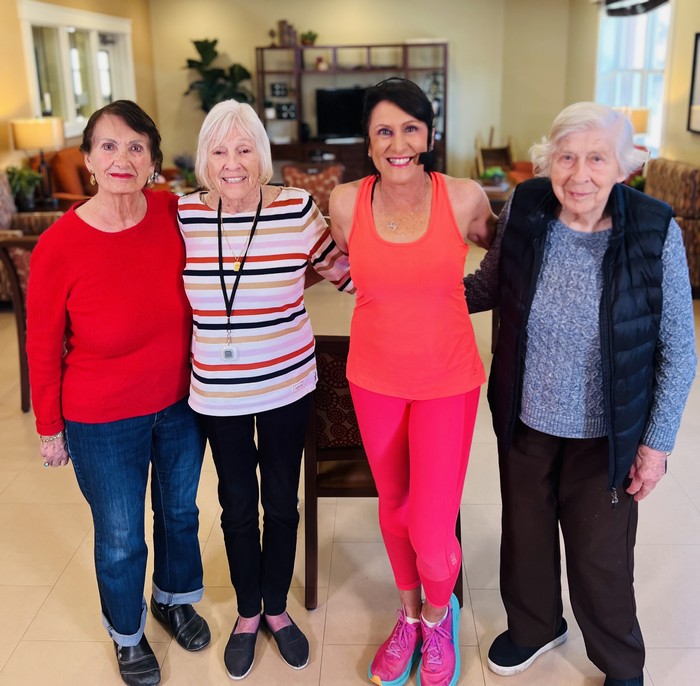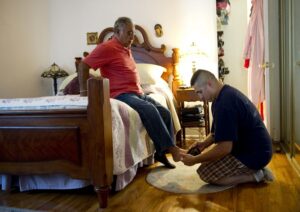
Good drivers are alert, think clearly, and make good decisions. When people with Alzheimer’s disease are not able to do these things, they should stop driving. But some people may not want to stop driving or even think there is a problem.
Older man with Alzheimer’s driving a carAs the caregiver, you must talk with the person about the need to stop driving. Do this in a caring way. Understand how unhappy the person may be to admit that he or she has reached this new stage.
People with moderate to severe Alzheimer’s disease should never get behind the wheel. People with very mild Alzheimer’s may be able to drive safely in certain conditions. But as memory and decision-making skills worsen, they need to stop because a driver with dementia may not be able to react quickly when faced with a surprise on the road. Someone could get hurt or killed. If the person’s reaction time or ability to focus slows, you must stop the person from driving.
Signs that the person should stop driving include:
New dents and scratches on the car
Taking a long time to do a simple errand and not being able to explain why, which may indicate the person got lost
Two or more traffic tickets or increased car insurance premiums
Comments from friends and neighbors about driving
Speeding or sudden lane changes
Confusing the brake and gas pedals
Recommendations from a doctor to modify driving habits
Other health issues that may affect driving ability, such as changes in vision, hearing, or mobility.
Some people with memory problems decide on their own not to drive, while others may deny they have a problem.
State laws vary regarding when a person with Alzheimer’s should stop driving. In some States, doctors are required to report to the State’s Department of Motor Vehicles whether a person has been diagnosed with Alzheimer’s or dementia. In others, anyone can report a potentially unsafe driver to the State. Check with your State’s Department of Motor Vehicles for more information. You may need to notify the person’s car insurance company, too.
It is a good idea to have the person’s driving skills assessed regularly by a professional. The American Occupational Therapy Association maintains a national database of driving specialists, or you can ask your State’s Department of Motor Vehicles or the person’s doctor to recommend someone who can test the person’s driving skills. Note that there may be fees associated with these types of assessments.
Department of Motor Vehicles staff may ask the person to retake a driving test. There are also a number of tools online that offer caregiver- or self-assessments.
Here are some ways to stop people with Alzheimer’s disease from driving:
Try talking about your concerns with the person.
Take him or her to get a driving test.
Ask the person’s doctor to tell him or her to stop driving. The doctor can write, “Do not drive” on a prescription pad, and you can show this to the person.
Hide the car keys, move the car, take out the distributor cap, or disconnect the battery.
Finding Other Transportation Options
If a person with Alzheimer’s can no longer drive, find other ways that the person can travel on his or her own.
For More Information About Driving Safety and Alzheimer’s
NIA Alzheimer’s and related Dementias Education and Referral (ADEAR) Center
800-438-4380
[email protected]
www.nia.nih.gov/alzheimers






